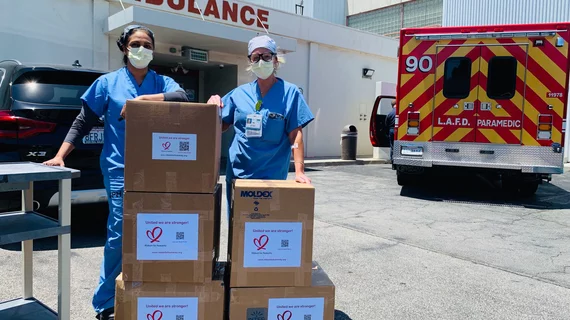3 ways hospitals can cope with costly, dangerous supply shortages
Before COVID hit, the U.S. was importing around a third of its PPE from China. Then that most populous of all countries moved to protect its own people, keeping what it used to ship.
Now U.S. hospitals are buying supplies from domestic suppliers. And paying $9 for surgical gowns that used to cost 40 cents.
To name just one example.
Lisa Ishii, MD, breaks down how we got here from there in a bylined piece running in Vox.
To save lives, the Johns Hopkins surgeon and senior VP points out, “we need personal protective equipment, we need tubing, we need gowns. And we also need to be able to ensure the long-term financial sustainability of our institutions. Without a reliable, affordable supply of a range of products, we can’t properly care for our patients, both those with COVID-19 and those with other health problems.”
Along with raising awareness of the problem, she suggests three actions healthcare leaders can take to help right the listing ship of supply-chain economics:
1. Diversify supply chains. There’s no time like the present to look to manufacturers in India, Central America and elsewhere, Ishii notes.
2. Focus on self-manufacturing. At Johns Hopkins, volunteers have stepped up. They’ve assembled tens of thousands of face shields, for example. “Of course, this sort of free labor is not the solution, but local supply handling could help ease the burden somewhat,” Ishii comments.
3. Pressure federal and state governments. Elected officials could help ensure that domestic PPE makers aren’t profiteering off the surge in demand, “as has apparently occurred in some places,” Ishii writes. “They could also provide financial and logistical support to healthcare providers so they can better manage higher supply costs.”
“As this situation continues to evolve,” she concludes, “the healthcare system and its partners will need to develop creative solutions to help ensure that hospitals can continue to afford to keep everyone safe.”
Click here to read the whole thing.

